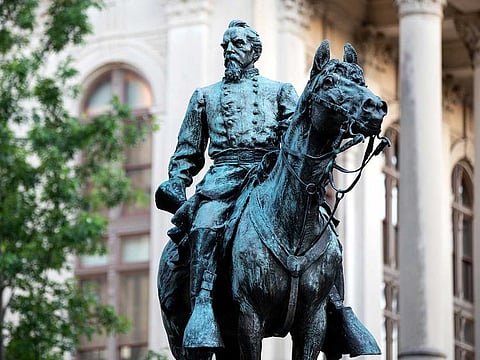George Floyd protests: A time for introspection in the US
Symbols and statues from a racist past should not find a place in today’s world

For weeks on the stretch the issue of race has been front and centre of political debate and protests in the US and elsewhere in the world. The introspection has been triggered by the death of a black man, George Floyd, who asphyxiated to death while pinned to the ground for eight minutes and 46 seconds by a police officer in Minnesota. A video of the incident, where Floyd repeatedly pleads that he can’t breathe, has inflamed racial tensions and touched a raw nerve across the Atlantic.
With a presidential election looming in less than five months’ time, not for the first time in the history of the US are race relations front and centre. Indeed, that is part of the issue for many protesters who have taken to the streets of American cities from coast to coast. Those out on the streets feel that the case of Floyd now provides an opportunity for real change to occur. But there remains little unanimity on how change can happen.
For many, the statues that remain on display of Confederate heroes of the US Civil War have no place in a modern society where all lives are cherished equally before the law.
For many, the statues that remain on display of Confederate heroes of the US Civil War have no place in a modern society where all lives are cherished equally before the law. But so too the historical names of other institutions such as military bases are a reminder of the divisions of race, slavery and past conflicts. How can a future of equality be assured when the actions and names of the past are present today?
There is no doubting that the US is a nation of liberty and individual freedoms enshrined in its Constitution and every other piece of modern-day legislation at federal and state level. It continues to be one of the greatest nations on earth. For generations, it has been the torch bearer of freedom and democracy — and that may well continue.
But it is not enough to hold up a light for others to see. Yes, that light must be shone on dark places and elements of its glorious history since 1776.
Now is a time to reflect on whether the signs and symbols, the names and the relics of the past have a place in today’s world. There must also be the recognition that what makes the US great is not its controversial history but its great diversity and decency. It is time for America to shake off its past and introspect.








